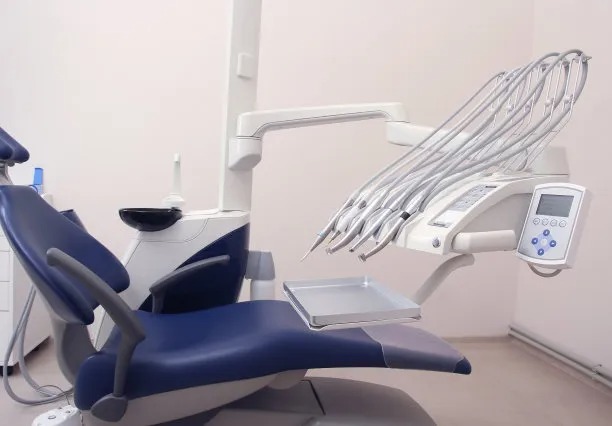Summary: Root canal treatment is a crucial procedure aimed at preserving dental health, yet it requires careful planning and execution to ensure safety and effectiveness. This article discusses essential precautions that should be adhered to before, during, and after the procedure. Key aspects include selecting an experienced dental professional, ensuring proper diagnosis and imaging, maintaining effective pain management, and implementing aftercare strategies for recovery. By focusing on these four essential aspects, patients can optimize their dental health and enhance recovery, leading to long-term benefits.
1. Selecting an Experienced Dental Professional

The first and foremost step in ensuring safe and effective root canal treatment is selecting an experienced dental professional. A skilled endodontist possesses the necessary training and expertise to manage various complexities associated with root canal procedures. Patients should research their options, read reviews, and consult with their primary dentists to find a specialist known for success and patient care.
An experienced professional also has access to the latest technology and treatment techniques, which can significantly influence outcomes. They are more adept at diagnosing specific issues and customizing treatment plans tailored to individual patient needs. Therefore, choosing the right specialist is crucial for ensuring optimal results.
Additionally, an established dental professional often has a network of support staff that can enhance the overall experience. A cohesive team can address both the clinical and emotional aspects of the process, ensuring that patients feel comfortable and confident throughout their treatment journey.
2. Ensuring Proper Diagnosis and Imaging
Before any procedure begins, a thorough diagnosis is essential for success. Proper imaging techniques, such as X-rays or cone beam computed tomography (CBCT), can provide detailed insights into the root structure and surrounding tissues. Accurate imaging allows the dental professional to assess the severity of the issue and plan the procedure accordingly.
Moreover, misdiagnosis or inadequate imaging can result in unnecessary procedures, complications, or poorly executed treatments. Thus, patients should not hesitate to ask their dental professionals about the type of imaging to be used and its significance in planning the root canal treatment.
3. Maintaining Effective Pain Management
Pain management is a critical component of root canal treatment, as it directly impacts the patients experience and recovery. Dentists employ various anesthetic techniques to ensure that patients feel minimal discomfort during the procedure. Understanding the different types of anesthesia available, including local and sedation options, can empower patients to discuss their preferences with their dental professionals.
Pre-procedural counseling is another essential facet of effective pain management. Dental professionals should communicate what patients can expect during and after the treatment, which can help to alleviate anxiety and reduce perceived pain levels. An informed patient is often more at ease and can contribute to better cooperation during the procedure.
Post-treatment pain management is equally important. Dental professionals should provide comprehensive aftercare instructions, including pain relief medications and coping strategies. Implementing effective pain management protocols can accelerate recovery, leading to optimal dental health restoration.
4. Implementing Aftercare Strategies for Recovery
Post-treatment care is essential to ensure successful recovery from root canal therapy. Patients should closely follow their dental professionals aftercare instructions, which often includes information on oral hygiene practices, dietary restrictions, and medication management. Adequate aftercare significantly reduces the risk of complications and promotes healing.
Refraining from certain foods, especially those that are hard or sticky, can help prevent strain on the treated tooth and surrounding structures. Additionally, maintaining excellent oral hygiene practices will support overall recovery and prevent future dental issues.
Regular follow-up appointments are also vital to monitor healing and address any concerns that may arise post-treatment. Patients should communicate openly with their dental professionals regarding any unusual symptoms to ensure timely intervention if needed.
Summary:
In summary, ensuring the safety and effectiveness of root canal treatment involves multiple critical precautions, starting from the selection of an experienced dental professional to the implementation of effective aftercare strategies. Patients must prioritize communication, proper diagnosis, pain management, and follow-up care to achieve optimal dental health.
This article is compiled by Vickong Dental and the content is for reference only
Vickong Dental
Vickong Dental is a large medical group established in Hong Kong in 2008 by professors from well-known medical universities in Guangdong and Hong Kong, as well as medical doctors from key national '985' universities (including Master's supervisors and senior professors). The chain of branches brings together expert dentists with PhDs and Master's degrees from Hong Kong and Mainland China, committed to providing high-quality dental treatment.
"Vickong Dental Practices the University Motto of 'Healing and Serving Society,' with a Stable Operation for Sixteen Years. It Has Been honored with Hong Kong Enterprise Leaders's Choice,' and is a Global Trusted Implant Center for the Nobel Implant System. Recommended by Hong Kong Metro Broadcast and Guangdong Television, it Serves Customers from Over Thirty Countries and Regions, Gaining the Trust and Favor of Citizens from the Guangdong-Hong Kong-Macau Greater Bay Area and Surrounding Cities.

Thousands of customers' unanimous praise
The most recognized and highly recommended dental service by customers in the Guangdong-Hong Kong-Macau Greater Bay Area
We Ensure You Receive Detailed Care and Attention Here
Hong Kong standards, Shenzhen prices, Your Trusted English-speaking dentists

Vickong Dental Medical-Grade Instrument Disinfection Process
Vickong Dental Medical-Grade Instrument Disinfection Process

Vickong Dental Chain: A Warm and Comfortable Environment for Treatment






Appointment Hours

Q&A
Why choose Vickong Dental?
Vickong Dental practices the university motto 「Medicine to Benefit Society」, with each branch bringing together highly qualified dentists with doctoral and master’s degrees from Hong Kong and the Mainland, and has maintained seventeen years of steady operation。Recipient of 「2024 Hong Kong Enterprise Leaders Brand」, 「2025 Hong Kong Enterprise Leaders Brand」, a Nobel Biocare Global Trusted Implant Center, and a brand recommended by Metro Radio Hong Kong and Guangdong TV。
To date, we have served customers from more than thirty countries and regions,earning exceptionally high word-of-mouth recognition and trusted recommendations from residents across the Guangdong-Hong Kong-Macao Greater Bay Area and surrounding cities
We have eight major branches in Zhuhai、Shenzhen,and a consultation and service assurance center in Hong Kong,so you can book a free consultation at any time for any questions,which is very reassuring.
If I do not accept the quotation after the CT scan, will I be charged??
No! As long as the actual treatment has not started, you will not be charged any fees.
Will there be any additional charges during the treatment process?
No, there won’t be any additional charges. Before treatment begins, we will clearly explain the treatment plan and its corresponding fees. Only after the patient agrees and signs the consent form will we proceed with the dental service.
Can I pay in Hong Kong dollars?
Yes. Vickong Dental accepts payment in Hong Kong dollars. The amount will be converted based on the exchange rate of the day, and the applicable rate will be clearly communicated to you in advance.
Can I reschedule my appointment at any time?
Yes. Please contact us via **WeChat** or **WhatsApp** as early as possible, providing your original appointment time and details, along with your preferred new date and time slot for rescheduling.













